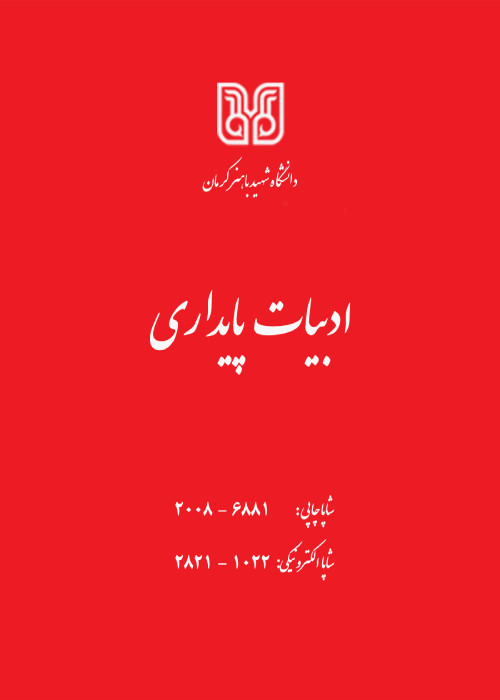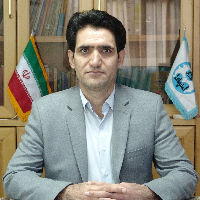Analysis of Farrokhi Yazdi's Resistance Poetry from the Perspective of Lyrical Poetry Theory
Introduction:
Poetry has always had a very important status in the past culture of Iran. Social, political, cultural, religious and historical issues of Iran are reflected in the mirror of Persian poetry. In many historical periods, in addition to its artistic role, poetry has also played an important role in communication. One of the most important periods in which poetry played this role was the Constitutional Period. Poets of this period played the most important role in social awakening, and poetry was the most important tool for this purpose .Among the poets of this period, Farrokhi Yazdi should be mentioned as the most important poet of ghazal in the Constitutional Era, who used this form of poetry to express his ideas of resistance. That is why he has been called 'the poet of freedom'. In addition to poetry, he published articles in praise of freedom and the struggle against dictatorship in the Toofan newspaper. Sometimes the existence of epic themes in the poetry of some important poets of this period (for example Bahar) has led researchers to think that the main background of resistance poetry is epic. But if we consider Farrokhi's poem as a whole, we will see that he often has a lyrical mentality in expressing the theme of resistance, even when referring to an epic story.
Considering that in the poem of resistance, issues such as obligation, commitment, and expressing social issues of a historical period expressed in explicit language are important, and on the other hand, in lyrical poetry, the expression of the poet's personal emotions is important, The main question of the article is how Farrokhi Yazdi was able to Express resistance themes through lyrical poetry. Therefore, this article critiques the concepts of resistance in the language of his poetry by paying attention to the text of Farrokhi Yazdi's poetry and structural analysis of his poetic propositions.
Choosing the format of ghazal by preserving its linguistic and content conventions to express the concepts of resistance, using different components of lyrical language and emotional functions of language and combining concepts of resistance with the domain of personal feelings are some of the most important components that Farrokhi has used for expressing concepts of resistance in poetry. In Farrokhi's political-lyrical poetry, the poet's political activities and actions are influenced by his sensual interactions and are combined with his emotional experience. In this type of poetry, often the personal 'I' of the poet is the main axis of the syntactic structure of the poem. The lack of freedom is the cause of the poet's pain and sorrow. Farrokhi can be considered the pioneer in combining the traditional spirit of lyrical poetry and explicit social and political concepts in the new era of Iranian poetry. Farrokhi Yazdi not only in his purely lyrical ghazal but also in other types of ghazals in general follows the tradition of Persian ghazals. In Farrokhi Yazdi's poetry, traditional contents of Persian lyrical poetry are always seen along with new themes and terminology of resistance. In general, he has been successful in combining these two components. The peak of lyrical mentality in creating visual compositions in Farrokhi Yazdi's poetry can be seen in the composition of The Beloved of Freedom. These resistance concepts for him are like the sacred and the beloved, which are constantly in front of his eyes and thoughts.One of the most important components of lyrical poetry in Farrokhi's poems is that he considers the concepts of resistance as a personal feeling. He considers the issues of people's resistance as a 'value'. His strong faith in these values and the manifestation of this faith in his emotional and intimate poetry makes him seem like a lover who has only the desire for freedom in Iran and is ready to sacrifice his life for 'freedom', 'homeland', and 'justice'. The most important feeling that connects Farokhi's lyrical mentality with his idea of resistance is the feeling of 'loving'. This feeling is also the most important feeling in Persian lyrical poetry. Love and affection are the product of the feeling of love that has created lyrical and mystical poems in ancient Persian poetry, and in Farrokhi's ghazal shows the poet's connection with resistance components such as freedom and homeland.
Considering Farrokhi's poetry as a whole, we will see that he often has a lyrical mentality in expressing resistance issues. The manifestation of this attitude in his poetry can be measured according to two characteristics: Farrokhi's first step in expressing the concepts of resistance is the use of lyrical language; the second component that makes his poetry lyrical is that he considers the concepts of resistance as a personal feeling. In Farrokhi's political-lyrical poetry, the poet's political activities and actions are influenced by his sensual interactions and combine with his emotional experience. One of the most important manifestations of this feature is the use of the emotional function of language. The lack of freedom is the cause of the poet's pain and sorrow. This is as sad as the distance of the beloved from the lover in ancient lyrical poetry. On the other hand, the concepts of resistance, especially 'freedom', are the main purpose of the poet's sense of 'love'. The poet offers his most intimate personal feelings for freedom. Freedom is the beloved in his poetry.
- حق عضویت دریافتی صرف حمایت از نشریات عضو و نگهداری، تکمیل و توسعه مگیران میشود.
- پرداخت حق اشتراک و دانلود مقالات اجازه بازنشر آن در سایر رسانههای چاپی و دیجیتال را به کاربر نمیدهد.



